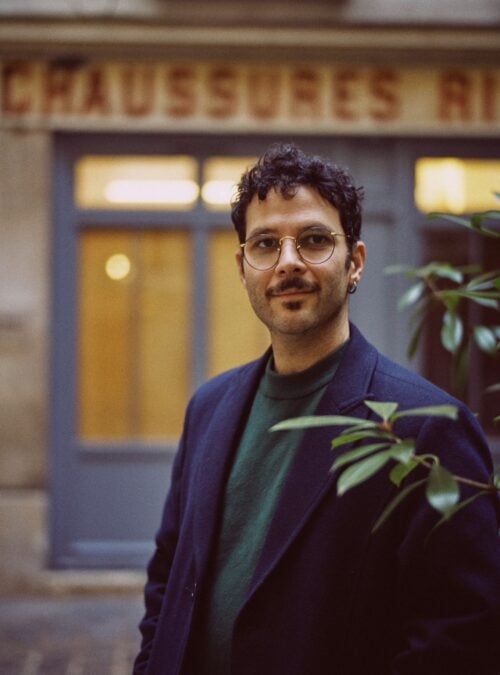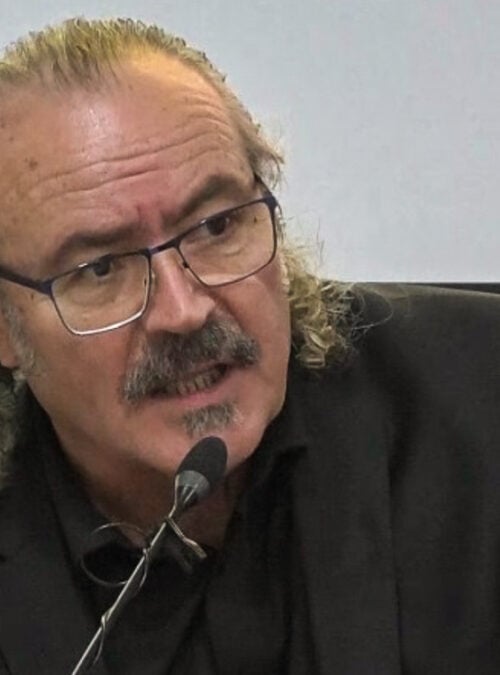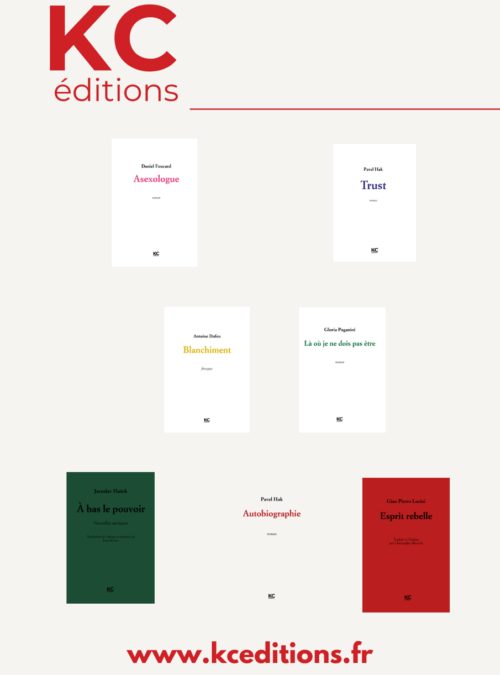A fellowship for publishers in Paris: interview with Andrea Tramontana (Bompiani)
Author: Paolo Grossi

Andrea Tramontana
Editor of fiction and non-fiction books with over twelve years of experience in the field. He has eclectic interests and an insatiable curiosity. He has a solid academic background with a PhD in Semiotics and a PostDoc in Art and History. His favourite reads include contemporary classics, biographies, popular essays and art books. He currently works with the Scuola Holden and is editor of non-fiction (essays and miscellaneous) for the Bompiani publishing house, part of the Giunti group.
How did you find out about this training initiative and why did you decide to enrol?
I first heard about this fellowship a few years ago from a French foreign rights manager during a dinner at a trade fair. It immediately struck me as a valuable opportunity to learn more about a market that is geographically close but has completely different dynamics from Italy. In addition, my colleague Giulia had participated a few years ago and I remember the great enthusiasm of her stories. Having had a fondness for France since my PhD, and given that Bompiani has historically published great authors from that country, I thought it was the right time to apply: a way to broaden my horizons, bring home new projects and perhaps reconnect with old contacts.
How was the course organised? What aspects did you particularly appreciate?
The organisation was impeccable: a skilful balance between classroom training, exploration of the urban environment and opportunities to exchange experiences, questions and best practices, all managed in an appropriate manner. The work of the France Livre team could not have been better: lessons with industry professionals alternated with visits to bookshops, libraries and publishers’ offices, without neglecting time for discussion with the other participating editors. I found every stage stimulating, but the two aspects that stood out for me were the quality of the relationships with the other editors and the visits to the publishing houses. The constant, informal dialogue (always very enjoyable) with editors from all over the world introduced me to many different models, solutions and ideas from colleagues driven by great passion. Equally valuable was the time spent at the publishing houses, elegant workplaces where we were introduced to truly functional and efficient workflows: from the prestigious headquarters of Gallimard and Stock to the colourful and surprising ones of Le Tripode, Les Arènes, L’Iconoclaste, Sous-Sol and Julliard. It was a broad overview of what is happening in French publishing, a taste of many possible ways of working – and a genuine moment of admiration.
Was this Parisian experience fruitful for you and your current role at Bompiani?
Very much so. It allowed me to gain a deeper understanding of the dynamics of the French market and, above all, to look at our Italian publishing habits and the large groups I have worked for with fresh eyes. I got the impression that in Italy, management and workers often follow a logic that is taken for granted, without questioning it, missing out on opportunities for real innovation that are necessary in the changing landscape of cultural consumption. The experience made me reflect on many delicate issues, such as the particularly critical margin for improvement in the dialogue between publishers and retailers – bookshops are resources to be protected because they are currently experiencing great difficulty – as well as direct communication with readers. In France, I found a very precise strategy and significant investment in promotion everywhere, as well as greater synergy between the various players in the supply chain, which I believe translates into a more dynamic and responsive market. There is much to learn as a publishing system as a whole, and much to do beyond legitimate competition between the players involved.
The Paris Books Market also took place in Paris during the course. Were the exchanges with French publishers productive?
Definitely, yes. The format of the short meetings (identical to that of London or Frankfurt) allows you to meet many people, but with one particular feature: here I was able to talk to smaller, independent, sometimes surprising publishers, not only French ones but also French-speaking ones, from Canada or the Maghreb. It was a real journey into a rich, multifaceted publishing ecosystem, full of voices that stand out from the crowd. I discovered authors, projects and ideas that I would never have encountered otherwise.
Finally, one last question about your work at Bompiani: what projects are you working on?
Bompiani is currently undergoing an exciting relaunch, involving the entire editorial team and beyond. The goal is to expand our offering, bringing us even closer to our readers without forgetting the brand’s identity: quality, literary attention, and care for books. As for non-fiction, my commitment is twofold: on the one hand, to find ways to promote our authors more decisively than we have done so far, and on the other, to seek out new voices capable of intercepting the needs of the present with an original perspective. I am working on a series of popular history books (a great passion of mine) but also on personal development projects that break with the usual formulas and offer innovative tools for reflection and change. And I must confess that some of the upcoming releases make me really happy.










